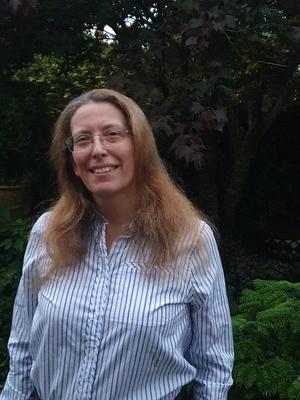Dr Lucy Leeman, Medical Immunologist
We are a small speciality, so most Immunologists are super keen to showcase their speciality and attract new people to our field. It really is a great option and is surely only going to grow in the future.

Can you tell us what immunology is?
Immunology is the scientific study of the body’s immune system; therefore, Clinical Immunology is a sub-speciality within Medicine and Pathology. Most Clinical Immunologists care for patients with immune deficiency (either primary, or secondary to another disease state), Hereditary Angioedema, and allergic diseases such as food, venom or drug allergy. However, we also have an important role within the Diagnostic Immunology lab, which assists in the diagnosis of a range of immune-mediated conditions such as autoimmune rheumatological, neurological and endocrine diseases. Our labs are also important for the diagnosis of haematological malignancy such as myeloma, immune deficiency and MS. So, we get insights into a wide variety of conditions clinically, diagnostically, or both.
Can you tell us about your average working day?
An average day mainly consists of Immunology or Allergy outpatient clinic, MDT, or lab time. Immunology is a small speciality so it’s common to have additional roles on top of clinical work such as a leadership role. My centre is closely allied to the local Medical School, so I contribute to teaching on a weekly basis. I’m fortunate to also be able to pursue some research interests so I will dedicate some of my work time to that. Immunology and Allergy are active areas for clinical trials so many Units have such opportunities.
What kind of work does your job involve?
My clinical work consists mainly of outpatient clinics, but we have ward consults and provide Immunological advice across the region to other hospitals. We have regular departmental MDT’s as well as inter-departmental MDT’s for complex cases, which may be local or National. I do a lot of clinical supervision for our multidisciplinary junior team, and we have medical students visiting our Unit weekly so there are supervised clinical appointments, assessments and clinical reasoning sessions to do. In the lab, my role is mostly clinical leadership of the diagnostic immunology service, which involves ensuring that we are providing a quality service that fits the current and future needs of our users. There’s a lot of strategic planning because pathology in general is under a great deal of strain in our hospitals. However, I can still be found behind a microscope interpreting patient results on a regular basis. I have developed a sub-speciality interest in chronic spontaneous urticaria and angioedema, and I run a large service dedicated to that condition. This has sparked some research interests, so I am developing an investigator-led research project and act as Principal Investigator for a number of other immunology based clinical trials.
Why did you choose this specialty?
I chose Clinical Immunology for a variety of personal and professional reasons. I didn’t want to pursue a career that required unsociable hours or lone working, and Immunology had the potential for flexible training and working.
Professionally, Immunology presented me with a challenge. Many of the conditions I learnt about were completely new to me and learning in-depth fundamental immunology, in a way that I could apply to all the areas of my work, was rewarding. There are also a broad range of opportunities within the speciality outside of direct clinical work, which appealed, and made this feel like a long-term and sustainable career option.
What do you enjoy most about your chosen specialty?
There are so many rewarding aspects to my job and I’m lucky to enjoy a great deal of job satisfaction. I work with a wonderfully dedicated and close-knit team and because our team is relatively small, I’m very conscious of the positive impact my nursing and administrative colleagues can have on the patient journey. I think this is such an important aspect of my work experience and ensures that I never feel alone with the responsibility of caring for complex cases.
Clinical Immunologists are often called upon when other specialities have drawn a blank so there is a good degree of intellectual challenge, and our patients are endlessly fascinating because the immune system is endlessly fascinating, and can present with all sorts of rare or even unique complications.
What do you find most rewarding about the role?
Certainly, for my Immune deficient patients there is a lot of continuity of care, and I have been involved in the management of some patients for many years. Sadly, I think this continuity is disappearing from many larger specialities, but I find it a very enriching aspect of what I do.
What advice would you give to students looking to enter your field?
Students and junior doctors may have to seek out their local Immunology centre, it may not be on their hospital site. We are one of the small non-mainstream clinical specialities that can offer a fantastic career but are usually not well represented in the medical school or foundation curriculum. We are a small speciality, so most Immunologists are super keen to showcase their speciality and attract new people to our field. It really is a great option and is surely only going to grow in the future.
